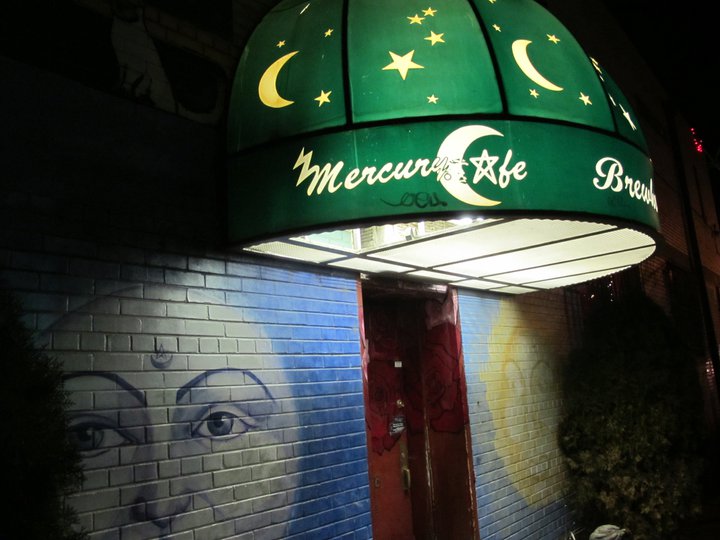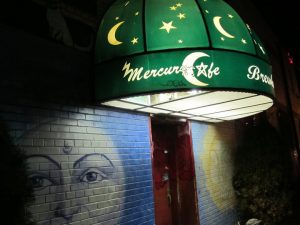Andrea Gibson, Westword | In 1999 I had very few friends. So few I’d leave work most Fridays knowing I wouldn’t likely speak to anyone until I clocked back in on Monday morning. It was, until this year’s pandemic, the loneliest time of my life. One weekend, flipping through the local paper, I saw a listing for a weekly Sunday night poetry slam at the Mercury Cafe in Denver. Having heard rumors about the magic of spoken word, I bussed the forty minutes from Boulder and walked two miles through the city to a twinkling urban heaven surrounded by sunflowers taller than myself. Pushing open the red-velvet curtain of the Merc’s entrance, I stepped inside, not knowing that step would be the most impactful step of my life.
For the last two decades, whenever I’m asked where I want my ashes scattered when I die, I answer, “the Mercury Cafe.” Not the Grand Canyon or the Pacific Ocean or the lavender fields of France. I want my ashes scattered at the Mercury Cafe in Denver, Colorado. When someone says, “You can’t scatter ashes inside of a restaurant!” I respond as I’ve responded for twenty years: “Marilyn will find a way.”
Marilyn Megenity is the Merc’s owner, though “owner” is a failed description for an anti-capitalist feminist revolutionary whose lifelong community activism lives at the heart of the two-story restaurant/music venue that has been for decades a political hub in Denver. From the windmills on the roof to the water-saving toilets atop which you can wash your hands (it’s amazing and sanitary, I promise!) to the walls painted like gardens blooming anti-fascist protest signs, everything about the place is an intentional offering to the betterment of the world.
In my early twenties, I’d spot Marilyn’s long silver hair in the corner of the packed venue and dream about one day living a life with that much integrity. I’d heard from her staff that she knew personally the woman who grew her restaurant’s veggies, the neighbor who distilled the restaurant’s whiskey, the man who caught the restaurant’s trout, consistently evaluating the impact of fishing practices on the local ecosystem. These were choices she made decades before organic was trendy. Choices made by her steadfast care for our planet and her genuine investment in our collective thriving.
It was in this space that I became a poet. For years the Mercury Cafe not only kept me alive, but kept me desperately wanting to live. The Sunday night poetry slam was the lifeblood of my becoming,
> > > > > > > > >
Art has been the most vital medicine in my life. So much so that I believe in humankind only to the degree to which humankind embraces creativity. I am sharing the Mercury Cafe’s GoFundMe page with the hope that I will one day have the privilege of performing there again, but much more so with the hope that young people will continue to find the home (and friends) there that I did. And if you’re reading this and want to support a venue particularly close to your heart, ways to help should be easy to find with a quick online search — as almost all of the venues you love are very likely struggling. May we find our way through this challenging time, and may art, love and community prevail.
Read the rest of the article here, along with photos and video:
https://www.westword.com/arts/andrea-gibson-on-saving-the-mercury-cafe-11752801
https://www.gofundme.com/f/mercury-cafe-covid-19-relief-fund-smb
Andrea Gibson, the winner of the first Women’s World Poetry Slam, has released seven full-length albums and published six books, including Lord of the Butterflies, which was the winner of the Independent Publisher’s Award in 2019 as well as a Goodreads Choice Awards finalist. Best known for live performances, Gibson speaks to issues of sexism, classism, patriarchy and white supremacy.


